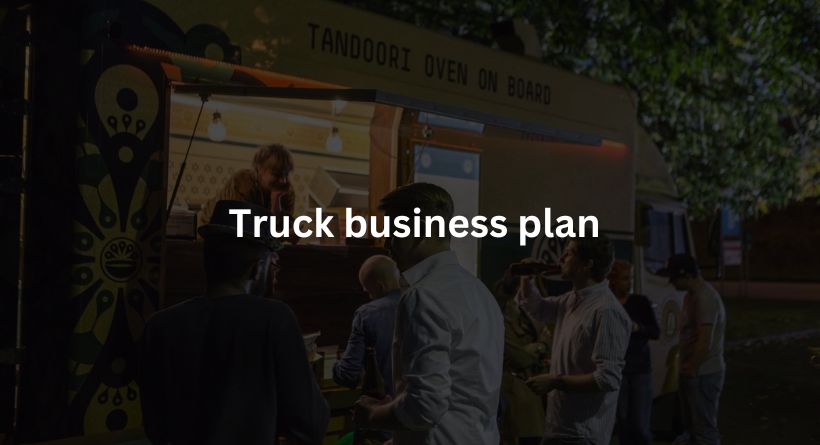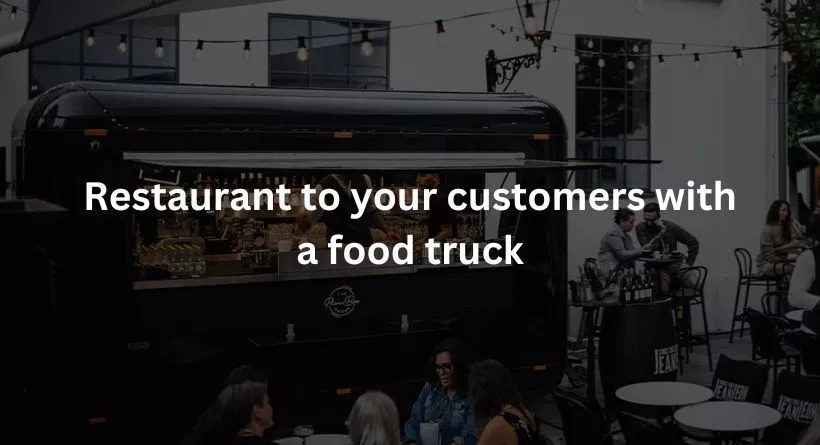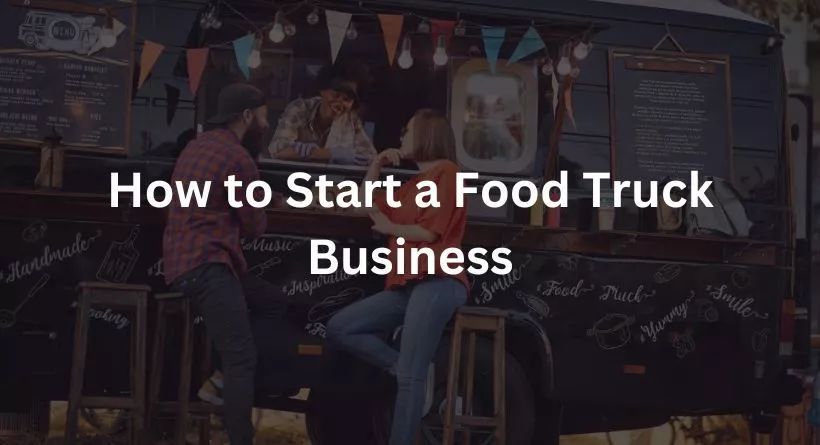The food truck industry may be lucrative. The information in this tutorial on starting a food truck business is for you if you’ve ever considered preparing tasty meals on the fly.
- Have you ever wondered how to launch a food truck company? Making financial estimates, creating a business strategy, and procuring the necessary equipment are quite similar to those of other businesses.
- Because these difficulties may lead to greater expenses than anticipated, it is crucial to account for them in a business strategy for the mobile food vending sector.
- Understanding the demand will be crucial because daily swings have an effect on a food truck’s bottom line.
- This article is for company owners who want to launch a food truck enterprise.
It may not always be feasible for foodies with an entrepreneurial urge to launch a physical restaurant straight away. Even if there isn’t much of a market for existing storefronts, rent and security deposit fees are still costly in urban areas, and that’s even before you start branding the location for your cuisine. Although not everyone will be able to do so, some people may be able to launch a food truck business. This article will explain how to launch a food truck company and why doing so can be the most effective approach to realize your new restaurant concept.
How to start a food truck
A mobile vending machine with a kitchen to prepare and serve food is called a food truck. They have been appearing all over urban and suburban areas in the US and are rising in popularity. Due to the high expenses associated with securing a restaurant space as opposed to food trucks, many business owners choose to operate them.
Here is the information you need to know before moving forward, including the initial expenses, funding alternatives, where to find food trucks, and more. 10 Things to Do before Opening a Food Truck is Related Content.
Write a food truck business plan

The dreaded business plan, you guessed it. You can create a reasonably convincing strategy that you can present to anyone if you follow the procedures shown here. A company strategy, however, still seems like a really difficult undertaking. I’m here to inform you that it’s not necessary.
In general, a business plan does not have to be a lengthy, 100 page document. I’ve seen blueprints of all size, ranging from one page to many.
You guessed it—the dreaded business plan. If you follow the steps outlined here, you can develop a plan that is relatively persuasive and present it to anyone. However, developing a corporate plan still appears like a really challenging task. I’m here to tell you that you don’t need to.
A business plan often doesn’t need to be a big, 100-page document. I’ve seen plans of all size, from one page to numerous.
Decide on the type of food truck you want to run
You undoubtedly have a favourite food truck experience in your neighborhood, so you can already determine what is successful there and what is not. Are street taco and veggie burger vendors overrunning your local festivals and craft beer patios but lacking in falafel and kebab trucks? Or do your streets already have a dearth of food trucks that only needs your sweets to liven up the dining scene?
You should carefully examine what sort of meal(s) your mobile small company can reliably and inexpensively produce. While you shouldn’t try to reinvent the wheel, you also shouldn’t be too eclectic. Do you want to prepare food and cook a certain amount each day? Do you like fresh salads or are you willing to spend your days inside a portable deep fryer producing designer tater tots? That could influence how you choose to prepare food.
Food truck startup costs
The initial launch expenses for a food truck company depend on a variety of things. Additionally, there are expenses that are one-time and location-specific.
A food truck’s purchase, a point-of-sale (POS) system, a truck wrap, website design, office supplies, advertising and public relations, as well as any professional, legal, or consulting fees, are examples of one-time startup expenditures. This list, while not exhaustive, provides prospective food truck entrepreneurs with an idea of some of the initial costs.
According to Rachel Angulo, owner of the La Coconut food truck, “We paid about $15,000 for the food truck itself, but we didn’t realize that we’d spent more than twice that to modify it to fulfil the local fire and health requirements, which vary quite a little depending on the town.
Then there are ongoing expenses like wages, obtaining ingredients, purchasing electricity from a generator, renting equipment, processing credit cards, and, of course, fuel. Every new food truck enterprise must also get the necessary permissions and licenses, which change based on the locality.
Food truck funding options
The largest obstacle you’ll likely encounter when beginning a food truck business is finding money.
A sound business strategy should be your first priority. In order to improve your chances of getting a business loan, you need also have solid personal and business credit.
There are additional, more inventive approaches to secure money for your brand-new food truck enterprise.
Create a food truck business plan
Every owner of a food truck should prepare and keep an updated business strategy. When you decide you want to establish a food truck business, it should be the first action you do. This paper is crucial to luring investors, obtaining finance, and starting your firm.
You May Also Like Reading: Maximizing Efficiency and Organization with Store Shelving Racks
Bring the restaurant to your customers with a food truck

In the end, your food truck is a guide for other people to follow, regardless of whether you choose to travel to other areas and interact with your social media following or simply run on Tuesdays on a certain corner street. The only way to swiftly expand your client base to cover fluctuations in demand and unexpected costs is to leverage your consumer base by offering high-quality cuisine. After a given amount of time, when you know that a certain weekend will see a large decline in foot traffic, catering orders are a terrific method to help bring in extra cash.
Your goal stays the same with the addition that you will be bringing your kitchen to your consumers every day, whether you are testing out your lifetime ambition of selling tasty pierogis or want to see if pizza slices to go from trucks are scalable. You’ll have to take it into consideration each and every day you work because it may be both thrilling and physically taxing.
Conclusion
It goes without saying that you could write a whole book about how to establish a food truck, and there are many particulars about the startup process that are specific to your city or region. Starting a business involves a lot of minute details, just like any other firm.
But if you take it slow and remember to enjoy the journey, I can assure you that you will eventually realize your dream of owning and running your own food truck company. I wish you nothing but the best on your trip and encourage you to sign up for our free food truck business kit, which includes a comprehensive copy of my business plan as well as other materials that will speed up the launch of my business.
FAQs
What food truck has the highest profit margin?
In North America, barbecue is frequently regarded as the most popular and lucrative food truck item. You’ll become the most popular restaurant on the block after you figure out what style of BBQ your customers want. Any BBQ may be customized with a few basic condiments, sauces, and spices.
How do I get a food truck license in PA?
How do you obtain a public health licence or permit? Prepare your facilities for inspection, complete the application from your local public health agency, and examine all food safety regulations. Get your public health permit after passing the inspection.
How to start a food truck in Washington State?
A county health permit, a local fire permit, and a business license are required in any city where you plan to vend. You may additionally require a street-use parking permit from the local DOT in some locations. If you’re a vendor at a festival or other special event, you may often obtain temporary health permits.
Can I sell homemade food in BC?
Home-based food businesses are allowed to sell low-risk foods including baked goods, candy, coffee, and tea at farmers’ markets, online, or directly from their homes in British Columbia.
Why is location important in a food truck?
The location of your food truck might be even more crucial than your menu in terms of impacting your bottom line. When you’re hungry, you want to eat at a location that is convenient and familiar. Usually, the cost and the food are only minor considerations.

